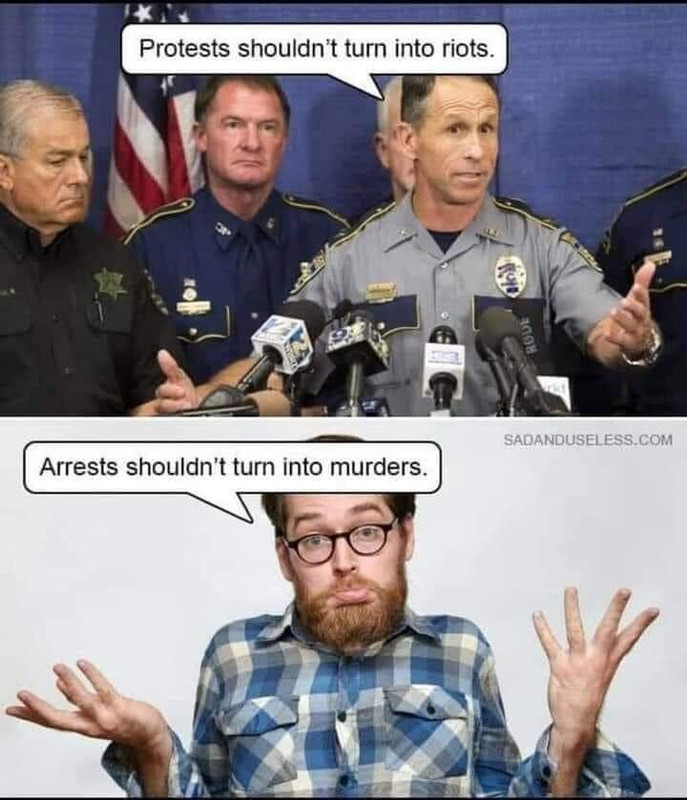The key to meaningful police reform lies in understanding the root causes of current practices and actively involving the community in public safety. It's crucial to comprehend the factors behind police budget allocations leading to military gear acquisition, as well as how societal dynamics and media influence police tactics and training that end with these "high-speed" officers.
Real progress starts with active engagement at the local level. How much time have we invested in understanding the workings of our municipal centers? How involved are we in committees overseeing police funding and training programs? It's not just about politicians dictating changes; it's about community members being proactive and informed participants in the reform process. You point out how we should not blindly follow our politicians and yet provide answers that sound like you have never even spent 5 minutes working on the problems yourself and just want politicians to "make the problem go away".
Simply replacing an organization without grasping the reasons behind its shortcomings risks replicating the same issues or, worse, exacerbating them. New leadership alone cannot solve deep-rooted challenges such as hiring practices influenced by the availability of military-trained personnel, or the complexities of civil service entry requirements that might exclude potentially excellent recruits.
Moreover, the notion that only those who care will respond to incidents is overly simplistic and if anything points out that SWAT teams are the most caring people out there. Yes, there are instances where police response is limited due to resource constraints, but is creating a new organization the solution to such logistical challenges that often aren't even in the hands of the police themselves?
The analogy of taking over a struggling business without understanding its core operations is apt here. Transforming a police force, an entity with significant authority and responsibilities, requires a well-thought-out plan, not just hopeful changes.
Our police forces do require reforms. However, these reforms should be based on a thorough understanding of existing challenges, collaborative community involvement, and pragmatic approaches, rather than hasty or uninformed decisions. Only then can we hope to see effective and sustainable improvements in our public safety systems.


